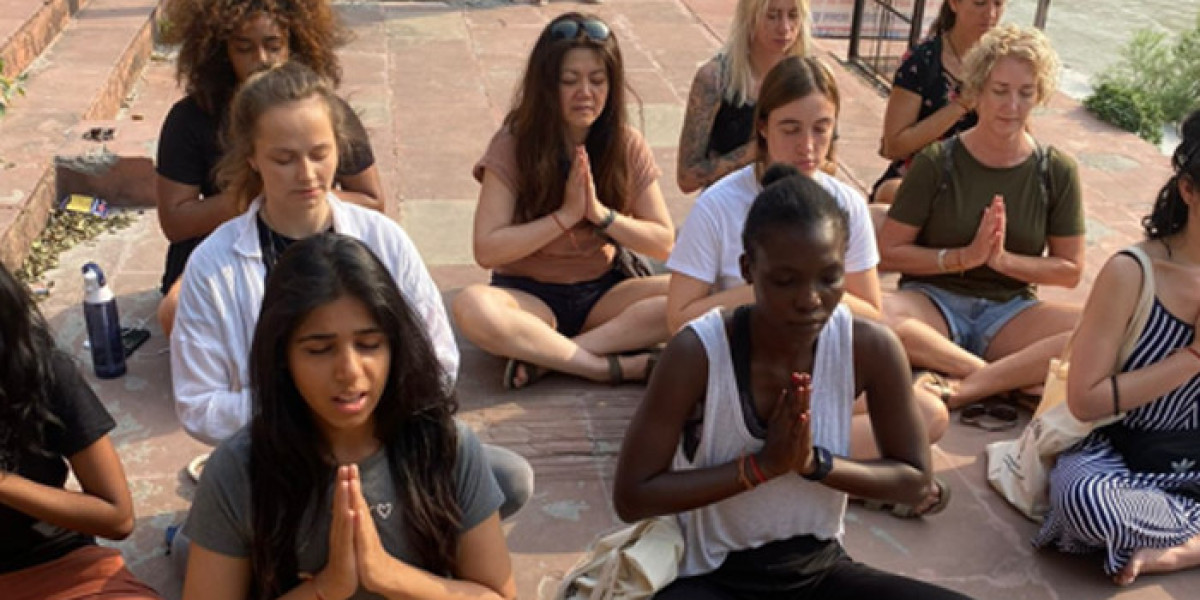In a world where maintaining a healthy weight often feels like an uphill battle, weight loss retreats have emerged as an appealing solution for many. These retreats promise a structured environment, expert guidance, and a break from daily stressors to help individuals jumpstart their weight loss journey. But can a weight loss retreat truly deliver sustainable, long-term results? Let’s explore the potential benefits, challenges, and factors that determine the lasting impact of such programs.
What Is a Weight Loss Retreat?
A weight loss retreat, sometimes referred to as a weight loss camp or wellness retreat, is a specialized program designed to help participants shed excess pounds, adopt healthier habits, and rejuvenate their minds and bodies. These retreats typically take place in serene locations, ranging from coastal resorts to mountain lodges, providing an environment conducive to focus and transformation.
Core Elements of a Weight Loss Retreat
Customized Nutrition Plans: Participants often receive personalized meal plans crafted by nutritionists to promote healthy, sustainable weight loss.
Exercise Programs: Fitness routines are tailored to individual needs and may include activities like yoga, strength training, hiking, and high-intensity interval training (HIIT).
Behavioral Coaching: Workshops and one-on-one sessions address emotional eating, stress management, and other psychological aspects of weight loss.
Educational Seminars: Many retreats include classes on topics such as meal preparation, nutrition science, and maintaining motivation.
Holistic Approaches: Mindfulness practices, meditation, and spa treatments are often integrated to promote overall well-being.
The Immediate Benefits of a Weight Loss Retreat
Structured Environment: A retreat provides a controlled setting, free from distractions and temptations, allowing participants to fully immerse themselves in their health goals.
Expert Support: Access to nutritionists, fitness trainers, and psychologists ensures that every aspect of weight loss is addressed.
Kickstarting Weight Loss: The intensive nature of these programs often leads to noticeable results within a short period, which can be highly motivating.
Skill Development: Participants learn practical skills, such as meal planning and effective workout techniques, that they can apply at home.
Mental Reset: Retreats offer a chance to step back from everyday stressors, fostering a positive mindset and renewed focus on health.
Can a Retreat Lead to Long-Term Results?
The effectiveness of a weight loss retreat in producing lasting results depends on several factors. While the immediate benefits are undeniable, the real challenge lies in maintaining progress after returning to daily life. Here are the key determinants:
1. Habit Formation
One of the primary goals of a weight loss retreat is to instill healthy habits. Research suggests that habits take time and repetition to form, and most retreats are relatively short, ranging from a few days to a few weeks. The longer the program and the more emphasis placed on habit-building, the greater the likelihood of sustained change.
2. Post-Retreat Support
Many successful retreats offer post-program support, such as virtual check-ins, online resources, and community forums. This ongoing connection can help participants stay accountable and navigate challenges in their everyday environment.
3. Individual Commitment
Ultimately, the participant’s dedication to maintaining the practices learned during the retreat plays a critical role. A retreat can provide the tools and inspiration, but consistent effort is needed to achieve long-term results.
4. Realistic Goals
Programs that focus on gradual, sustainable weight loss rather than drastic changes are more likely to lead to lasting outcomes. Retreats that emphasize education and realistic goal-setting empower participants to continue their journey independently.
5. Addressing Underlying Issues
Weight loss is often intertwined with emotional, psychological, or medical factors. Retreats that delve into the root causes of weight gain and offer personalized strategies for overcoming these obstacles are better equipped to support long-term success.
Potential Challenges
While weight loss retreats have numerous benefits, they’re not without challenges:
Cost: High-quality retreats can be expensive, making them inaccessible to some individuals.
Short Duration: The limited timeframe of a retreat may not be sufficient to solidify new habits.
Reintegration: Returning to daily life with its inherent stressors and temptations can make it difficult to maintain progress.
Unrealistic Expectations: Participants who expect dramatic, immediate transformations may feel discouraged if progress slows after the retreat.
Maximizing the Impact of a Weight Loss Retreat
To ensure that the benefits of a weight loss retreat translate into long-term results, consider the following strategies:
Choose the Right Program: Select a retreat that aligns with your goals, preferences, and lifestyle. Look for programs that prioritize education and sustainable practices over quick fixes.
Set Post-Retreat Goals: Before leaving the retreat, create a plan for how you’ll continue your journey at home. Establish specific, achievable goals and a timeline.
Build a Support System: Share your goals with friends or family members who can encourage and hold you accountable. Consider joining online communities or support groups.
Invest in Continued Learning: Use the knowledge gained during the retreat as a foundation for further education. Read books, attend workshops, or consult experts to deepen your understanding of health and wellness.
Practice Self-Compassion: Weight loss is a journey, not a race. Be patient with yourself and celebrate small victories along the way.
Are Weight Loss Retreats Right for Everyone?
Weight loss retreats can be beneficial for a wide range of individuals, but they may not be suitable for everyone. Here’s who might benefit most:
Those Needing a Fresh Start: If you’ve struggled to make progress on your own, a retreat can provide the reset you need.
Individuals Seeking Expert Guidance: For those who want professional advice on nutrition, fitness, and mental health, retreats offer a comprehensive approach.
People in Need of Motivation: Immersing yourself in a supportive environment can reignite your determination and enthusiasm.
However, those with significant medical conditions or unrealistic expectations may need to approach retreats with caution or seek alternative solutions.
Conclusion
A weight loss retreat can be a powerful catalyst for change, offering the tools, knowledge, and inspiration needed to embark on a healthier lifestyle. While the immediate results can be impressive, the true value lies in the habits and mindset shifts cultivated during the experience. By choosing the right retreat, setting realistic goals, and committing to sustained effort, participants can achieve long-term success and improved well-being. Whether you’re looking to shed a few pounds or transform your relationship with health, a weight loss retreat may be the first step toward lasting change.








